Women show how they are building climate-resilient agricultural communities in Bangladesh
Date:
Author: Shararat Islam
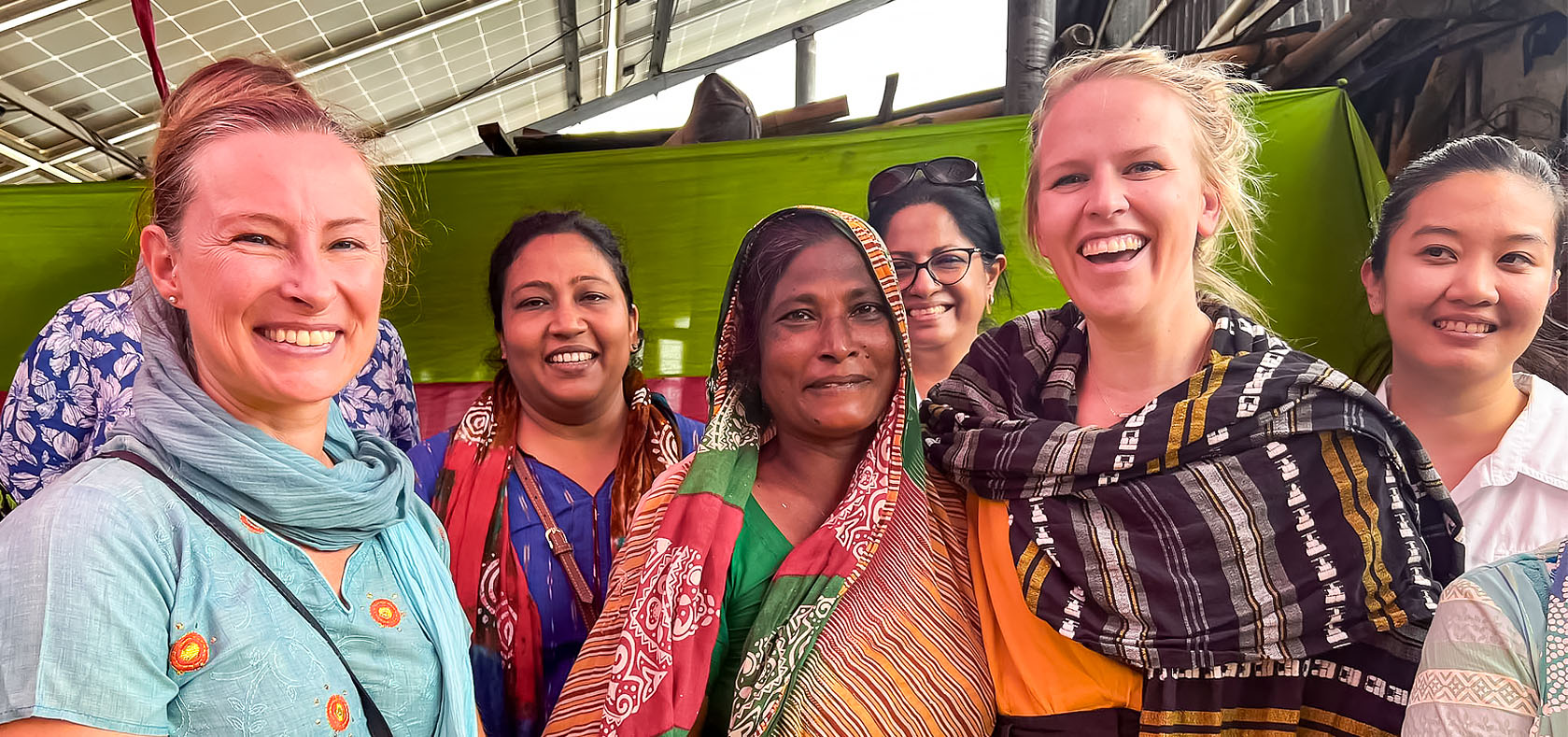
Khulna, Bangladesh — Women farmers in southwest Bangladesh have shown a visiting delegation of Bangladesh and Swedish Government officials how much their livelihoods have been boosted by a Swedish-funded programme that helps protect women and girls from disasters.
The meetings with the women participating in the programme, EmPower: Women for Climate Resilient Societies, took place during a field visit jointly organized by UN Women and the United Nations Environment Programme (UNEP) to Khulna Division from May 17 to 19 May 2023. UN Women and UNEP jointly implement EmPower, funded by the Swedish International Development Agency (Sida), to promote gender equality and human rights in climate change and disaster risk reduction efforts in Asia and the Pacific.
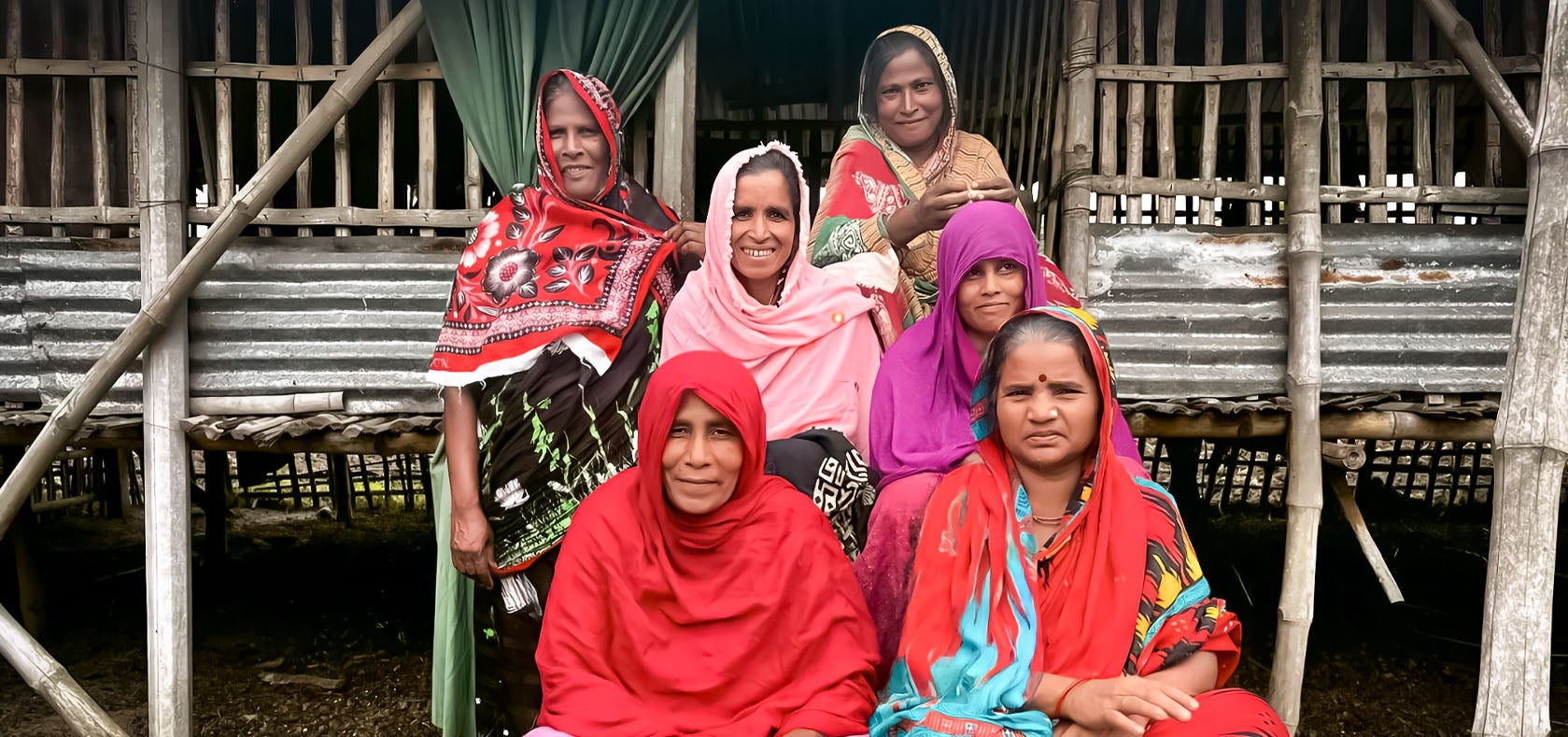
The visitors included Dr. Farhina Ahmed, Secretary of the Ministry of Environment, Forest and Climate Change, Bangladesh; Tove Goldmann, First Secretary, Senior Programme Manager Environment & Climate Change, Regional Development Cooperation Section, Embassy of Sweden; Nayoka Martinez Bäckström, First Secretary, Environment & Climate Change, Development Cooperation Section, Embassy of Sweden; and UN Women and UNEP representatives.
The delegation met with women entrepreneurs who raise goats using renewable energy and about 10 representatives of 56 grass-roots women-led civil society organizations (CSOs) that have received leadership training under EmPower.
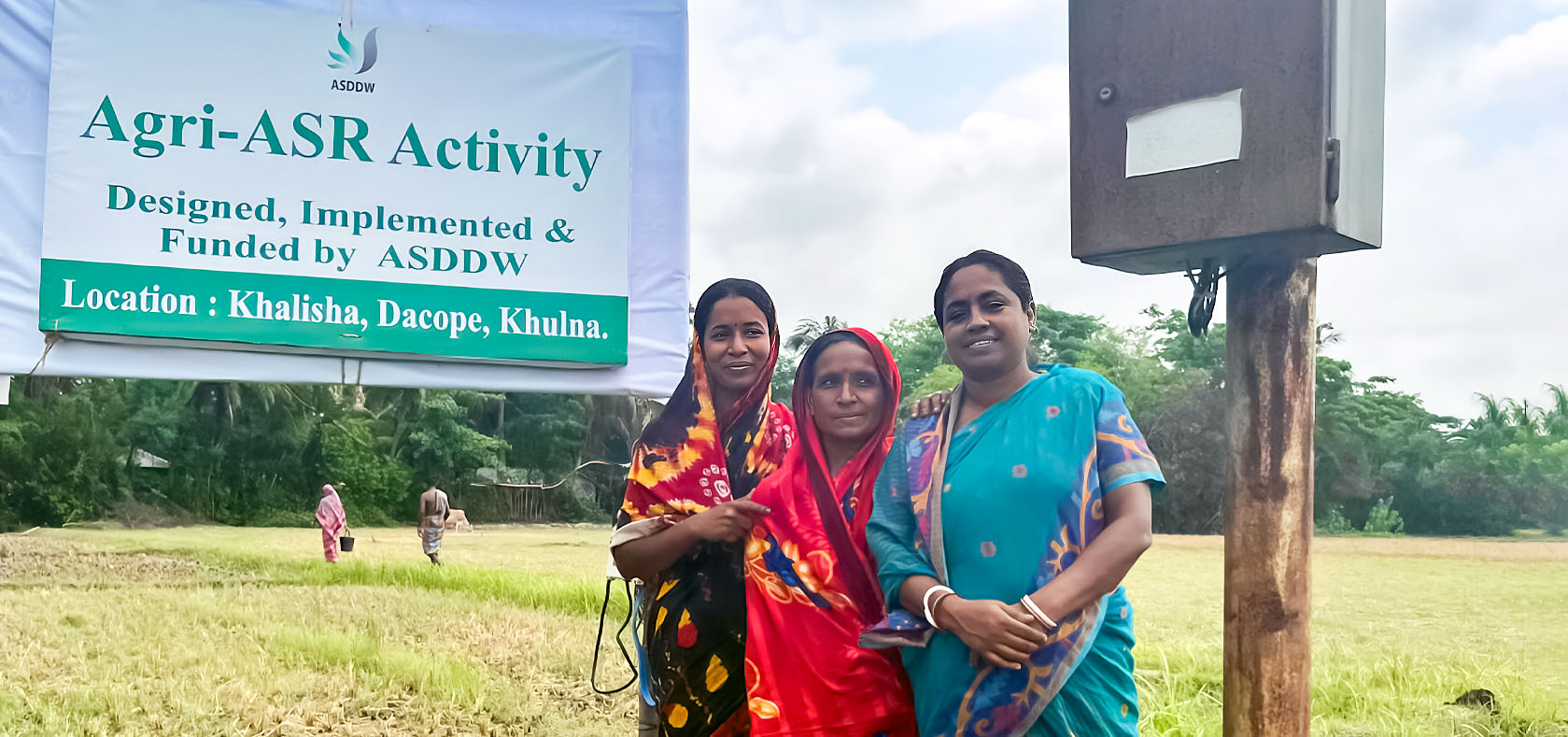
With UNEP technical assistance, the project has supported smallholder farmers such as Reti Khatun in Chuadanga district. The project was implemented with support from Infrastructure Development Company Limited (IDCOL), a Bangladesh partner organization of UNEP under EmPower.
At the site the delegation visited, the goat farm was integrated into one of the existing solar irrigation projects of IDCOL. The women selected goat farming because of the popularity of the region’s Black Bengal goats and its high market potential. The five-member women’s group received 10 goats and a goat shed built on the solar irrigation site. The surplus electricity from the solar irrigation project, which would have otherwise gone to waste, was used to run the shed’s lights, ventilation fans and pump to provide water for the goats and the grass that they consume. These types of clean energy systems support rural livelihoods in a cost-effective manner, while reducing greenhouse gas emissions by replacing highly polluting diesel pumps with solar energy.
“Previously, we used to work in households, doing domestic chores,” Khatun told. “And now we’re involved in goat rearing, which is a much better trade for us. Women in my village are interested in goat rearing as it helps to build a sustainable income source.”
When she was a household helper, Khatun made USD10-15 per month while working full-time. After switching to rearing goats, she has been making USD20-25 more per month while working several fewer days. Her success has inspired other women in her village to become entrepreneurs and strive for economic security.
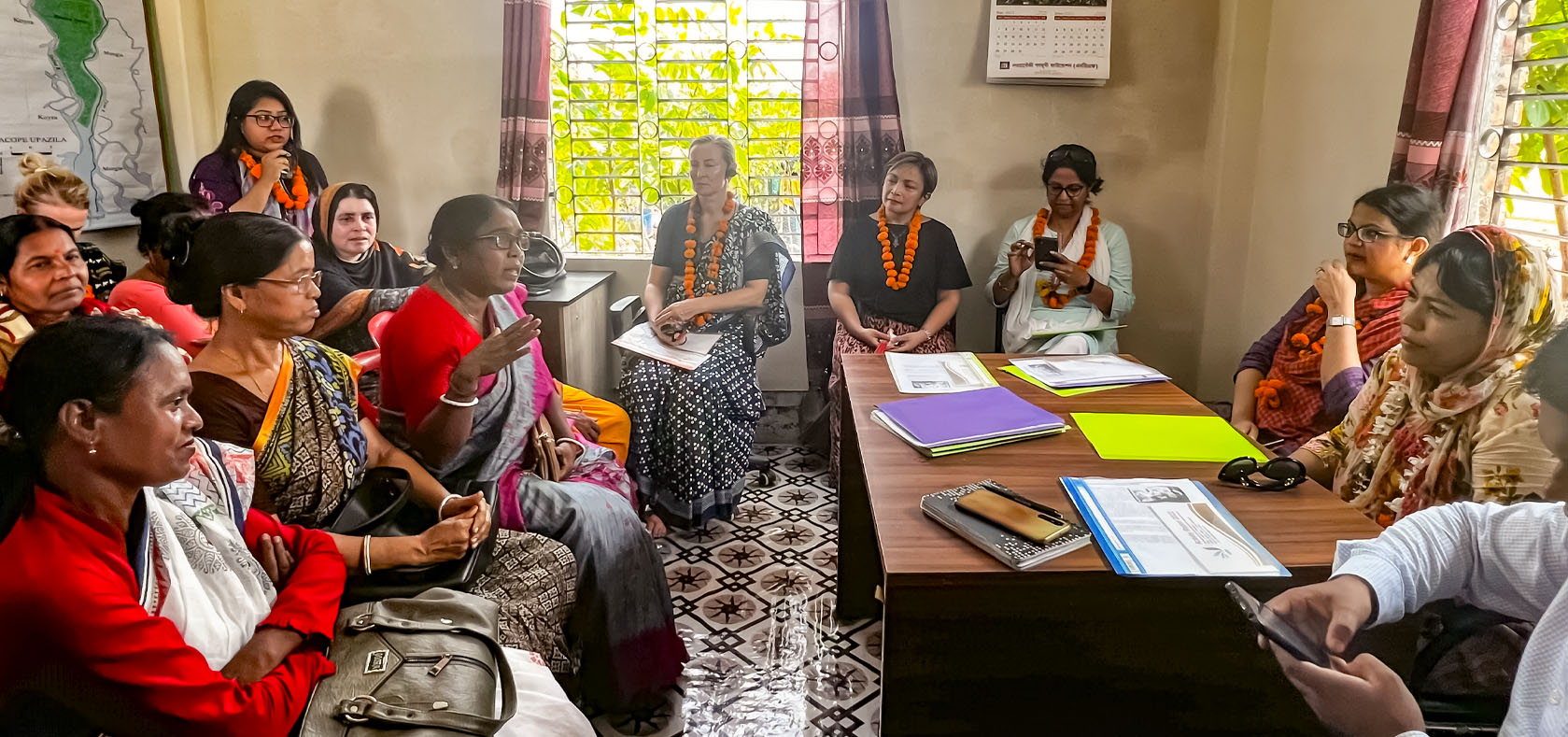
In Dacope, another project location in Khulna Division, the women CSO leaders demonstrated two community-led adaptation projects that they had started, managed and financed after receiving leadership and organizational skills training led by UN Women.
They showed the visitors their system for collecting and storing rainwater for household and irrigation use. In a region plagued by saline intrusion and arsenic contamination, the system has proven vital in addressing water supply challenges. It was set up by the Association for Social Development & Distressed Welfare, a grass-roots women-led CSO.
"We live in an area where disaster is common. So we have to accept that disasters will be a part of our life and we have to learn to adapt," the chairperson of the association, Lipika Baraigi, told the visiting delegation.
The local women also demonstrated their improved cookstoves, which require less wood and emit fewer pollutants. The women had previously used mud stoves, which cause eye, heart and lung infections. As an added benefit, the new cookstoves are mobile and can be carried to cyclone shelters.
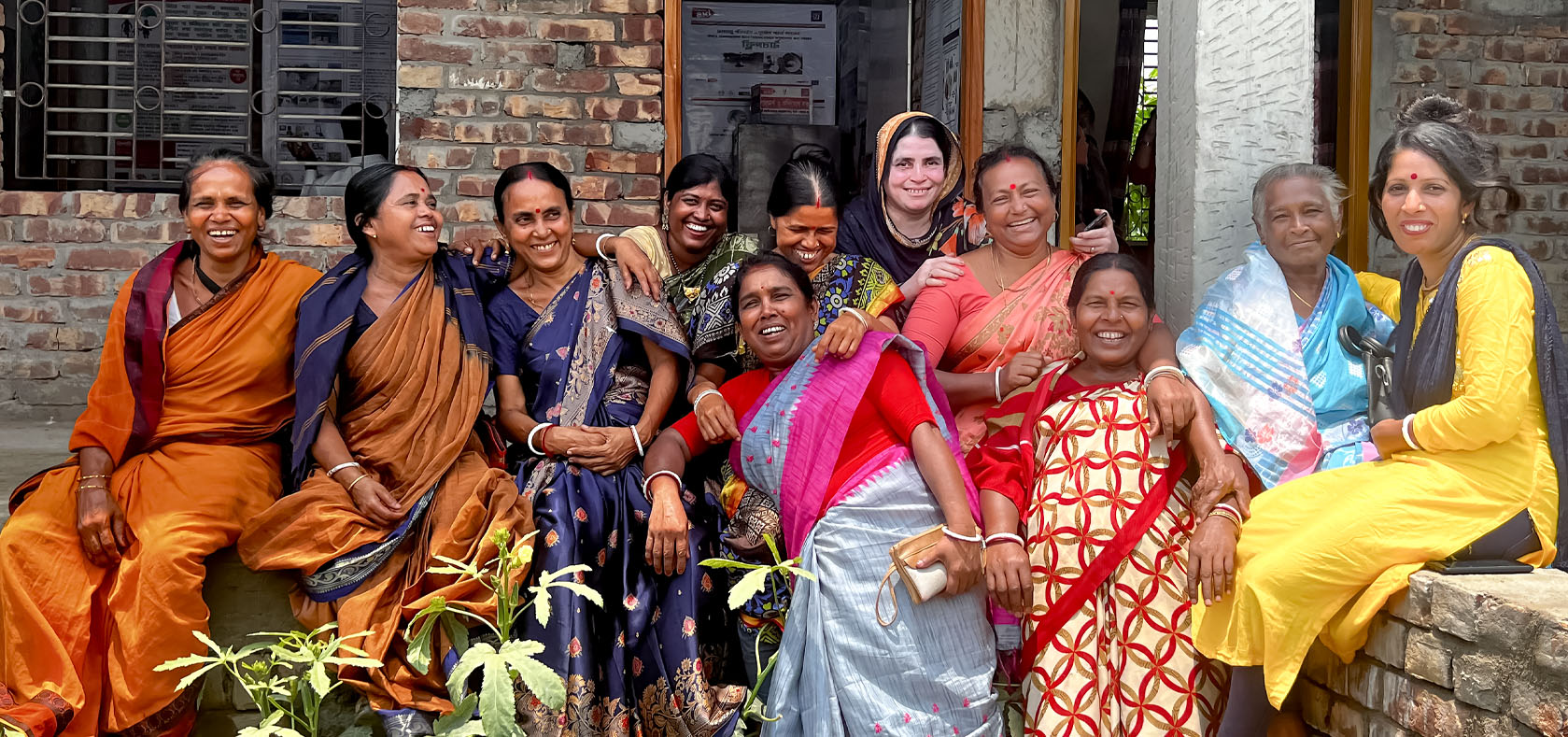
“I am so impressed to witness the courage and capacity you all have showcased,” said Ahmed, Secretary of the Ministry of Environment, Forest and Climate Change. “We will support the installation of more solar pumps through engaging local authority.”